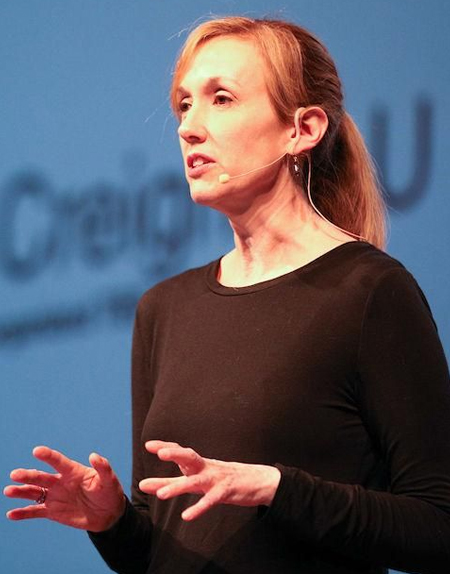 Scattered – Stalled – Stuck
Scattered – Stalled – Stuck
Your job description is practically endless and gets longer every year.
Excellent teaching is demanding of your creative energy and emotional labor. Hitting marks for promotion is like shooting arrows at a moving target. You strive to adapt to rapidly changing institutional business models that may or may not align with the work of teaching and learning – or your values.
Budgets are tighter, grants are more competitive, and reductions in support staff are a regular occurrence.
You go the extra mile for your students to prepare them for a world of climate change, political turbulence, science denial, and denigration of expertise. These challenges create levels of anxiety and depression that are now endemic in students of all age groups.
You feel underappreciated and overworked.
The world around you thinks you teach a couple of hours a day and lay in a hammock during the summer. Your friends and family in other career fields are supportive, but it takes so long to explain the intricacies of your institution and profession.
College professors are in a weird place within the economies of resources, economies of prestige, and forms of structural inequality that remain embedded in academia. It is a system with its own sets of rules and rewards. You must be in the profession to get it. So, you talk to your colleagues.
Venting with your colleagues feels so, so good at the moment. And then, there’s the hangover – sitting together in your collective frustrations leaves you feeling validated in your stuckness. The validation feels good, and you would never deny that relief to a colleague who wants to unburden themselves.
But with every turn of the cycle, you settle into the status quo. Before long, that wheel is stuck.
 What will you have to look back on when you retire?
What will you have to look back on when you retire?
Your frustrations for today become fears for the future with every passing year.
You worry that your institution may never return to operations that free professors to research, teach, write, and create. You wonder if your work will ever fully align with your talents, training, and values. Your heart sinks at the possibility that you might not fulfill the career aims you were going for as a graduate student.
The changing realities in higher education and cultural institutions are real. And many are immutable. They cast the illusion that you must work and live within their strict limitations. This illusion demands investigation.
With clarity about your professional mission, core desires for your life and career, and the realities of your circumstances, you can make decisions that might not lead to the idealized version of your career that you had as a graduate student. But they will enable you to make choices about how you work in a way that will make you feel proud in retirement.
Your talents and career are yours.
So, what do you want them to serve?
It has been a long, long time since anyone asked you what you want your career to be. In the precarious world of academia, the answer is a version of “whatever it needs to be to keep my job and have a shot at a salary increase and/or support for my projects.”
That answer is realistic. Keep that perspective but think about a few more questions.
Who do your talents, training, and expertise belong to? What would your career look like if you called more of the shots?
I know you would like to have work-life harmony.
You could do exciting things with your talents that you have never tried before (that doesn’t involve working more hours, drinking more coffee, fearing mounting deadlines, and going for the gold medal in the Culture of Stress Olympics).
A figurative gold medal is an achievement, but you merit something so much better.
Coaching moves you from thought to action to accelerated change.
A professional coach provides a process of inquiry, discovery, action planning, and accountability that accelerates change. Coaching techniques move you more quickly toward clarifying your goals, identifying your options, mobilizing your strengths, navigating obstacles, and making measurable, meaningful change.
You don’t have to be at the depths of despair to come to coaching. You can work toward whatever you want. Some clients focus on improving performance in existing areas of strength, while others build confidence in areas of concern.
Others collaborate with a coach to navigate new career challenges, adopt new work habits, achieve better work-life balance, and transform stinging criticism into innovation power boosts.
Still, others want to improve communication with colleagues and students or shift the mindsets that foster impostor syndrome, perfectionism, procrastination, and other internal saboteurs.
Coaching draws from evidence-based methods in positive psychology and cognitive-behavioral theory to alter thought patterns, increase motivation, and distinguish between immutable truths and longstanding perceptions whose longevity makes them seem immutably true.
Coaching provides you with tools and strategies for articulating what you want, navigating obstacles, mobilizing your strengths and available resources, and setting significant, actionable, and incremental goals. Coaching is partly about changing how you feel, but it is mostly about moving you into action.
 I know this terrain you are trying to navigate.
I know this terrain you are trying to navigate.
My academic and creative clients start on the fast track. You have a life to live, and the world needs more of the best of what you have to offer. The sooner your process kicks into gear, the better!
I came to coaching as an endowed professor of history, author, filmmaker, journal editor, public speaker, museum exhibition planner, former department chair, and interdisciplinary program director who wants all of us to flourish and thrive.
My work as a social historian focuses on discovering how people exerted agency over their own lives, even in the most repressive historical circumstances.
I have long relied upon oral history interviews so that the historical actors have authorship of their own experiences. Their stories inspired a lot of thought about how I exercise agency over my circumstances. They moved me to pursue my “crazy vision” to reinvent my career to serve my profession as the historian/coach/believer in change that I am today.
My experiences in higher education and cultural institutions were largely positive. Over time, though, ill-fitting business models started determining how our gifts as thinkers, creators, researchers, communicators, and teachers are used – or sidelined. I saw too many talented colleagues feeling scattered, stalled, stuck, and wondering when the career they trained for would start.
The world needs your ideas, insights, and discoveries.
I want to help you create what you need to bring the best of what you have offered into the world.
You bring your desires, and we will collaborate on defining your vision and charting a course toward bringing as much of that vision into your current reality as possible. We will set achievable, measurable goals between coaching sessions – and I will firmly and compassionately hold you accountable for meeting them.
Your goals are promises you make to yourself. It is vital to keep them, especially if it has been a long time since you consistently prioritized your own needs and showed up for yourself to meet them.
Oh, and I am going to celebrate your wins with you. Big or small, they all count, and I delight in each one!
You are the author of your own life. Let’s give you the tools and the time to write your story. I can’t wait to see it unfold.
Let’s chat!

